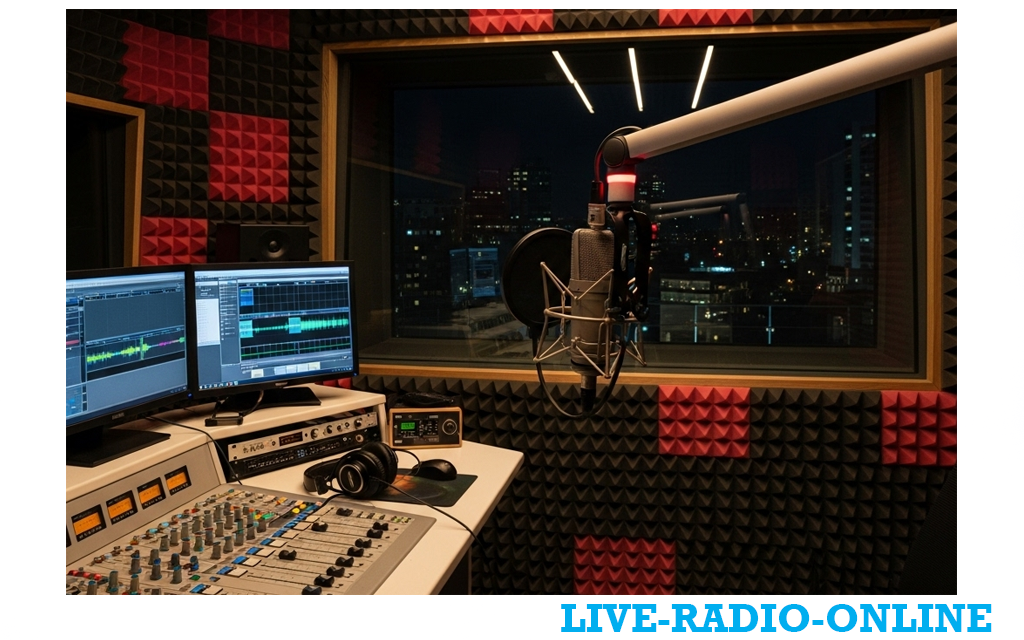
Becoming a good radio host is a fantastic goal. It's a unique blend of technical skill, personality, and preparation. Here is a comprehensive guide broken down into key areas.
1. Master the Foundational Skills
These are the non-negotiable, core skills every host needs.
-
Your Voice is Your Instrument: You don't need a "radio voice" (that deep, booming cliché), but you do need a clear, articulate, and pleasant speaking voice.
-
Articulation: Practice enunciating your words clearly. Tongue twisters are a great exercise.
-
Pacing: Learn to vary your speed. Talk quickly to generate excitement, but slow down for important points or to create intimacy. Avoid monotone delivery.
-
Pitch and Tone: Use the natural melody of your voice. Smiling while you talk genuinely changes the tone of your voice and makes you sound more engaging.
-
Breathing: Learn to breathe from your diaphragm. This gives your voice more power and stability and prevents you from sounding breathless.
-
-
Content is King: A great voice means nothing without something to say.
-
Be Prepared, Not Scripted: Have a show outline or "clock" with topics, songs, ads, and time markers. Know what you're going to talk about, but speak conversationally, not like you're reading an essay.
-
Be Relevant: Talk about things that matter to your audience. This includes local news, events, weather, traffic, and popular culture.
-
Find Your Angle: Anyone can read a news headline. A good host provides a unique perspective, a funny story, or an insightful comment on it.
-
-
The Art of Listening: Radio is a two-way street, especially with callers or a co-host.
-
Active Listening: Truly listen to what your caller is saying instead of just waiting for your turn to talk. This allows for genuine, spontaneous reactions and follow-up questions.
-
Control the Conversation: Be polite but firm. If a caller rambles or goes off-topic, it's your job to gently steer them back or wrap up the call.
-
2. Develop Your On-Air Personality
Your personality is the amplified, more entertaining version of yourself.
-
Be Authentic: Listeners are incredibly good at detecting fakes. Don't try to be someone you're not. Amplify your natural humor, curiosity, or passion.
-
Connect with the Audience: Make the listener feel like you're talking directly to them. Use "you" and "I" instead of "everybody" and "we." Share small, relatable personal anecdotes.
-
Energy and Enthusiasm: Your energy sets the tone for the entire show. Even if you're tired, you need to bring a level of energy that engages people who might be half-asleep on their commute or bored at work.
-
Be a Storyteller: The best hosts frame everything as a story. A traffic jam becomes a "nightmare on the I-5." A new song release is a "comeback story." Stories are captivating and memorable.
3. Technical Proficiency & Production
Modern radio hosts are often their own producers.
-
Learn the Board: Understand how to operate the control panel—fading music in and out, triggering sound effects, managing your mic levels, and taking calls smoothly. Nothing kills a show like dead air or blisteringly loud audio.
-
Editing Skills: Learn basic audio editing software (like Adobe Audition or Audacity) to edit interviews, produce pre-recorded segments, and create "best-of" packages.
-
Embrace Technology: Understand how your station streams online, uses social media, and engages with apps. The radio station is no longer just a transmitter.
4. Building Your Career
-
Get Educated: Consider a degree or certificate in broadcasting, journalism, or communications. This provides foundational knowledge and crucial networking opportunities.
-
Start Small (or Create Your Own Platform): Get your first experience at a college radio station, a community station, or even a hospital radio station. If that's not available, start a podcast. A podcast is your own radio show and is the perfect demo reel to showcase your talent, technical skills, and ability to consistently create content.
-
Create a Killer Demo Reel: This is your audio resume.
-
Keep it short (3-5 minutes max).
-
Start with your absolute best, most engaging material.
-
Show range: include a music intro, a talk break, an interview clip, and how you handle a caller (if you have it).
-
Production quality matters. Make it sound professional.
-
-
Be a Sponge: Listen critically to radio hosts you admire. What makes them good? How do they structure their show? How do they interact with callers?
-
Network: Attend industry events, connect with professionals on LinkedIn, and don't be afraid to send your demo to Program Directors (PDs). Be persistent but polite.
5. The X-Factors: What Truly Separates the Good from the Great
-
Curiosity: The best hosts are genuinely curious about people, stories, and the world. This makes interviews fascinating and content endless.
-
Resilience: Radio is a tough industry with odd hours and a lot of rejection. You need thick skin and a passion that keeps you going.
-
Versatility: Be prepared to work any shift (overnights, weekends) and be able to host different formats (talk, music, sports).
-
Professionalism: Show up on time, be prepared, be a team player with producers and other hosts, and handle criticism constructively.
Becoming a good radio host is a journey. It requires dedication, a willingness to learn, and a genuine love for connecting with an audience through the power of sound. Good luck!


